Pride on the Pitch: What the U.S. Soccer Rainbow Numbers Mean to National Team Players
The federation introduced jerseys celebrating the LGBTQ+ community in 2017, the USWNT and USMNT have worn them every Pride month since.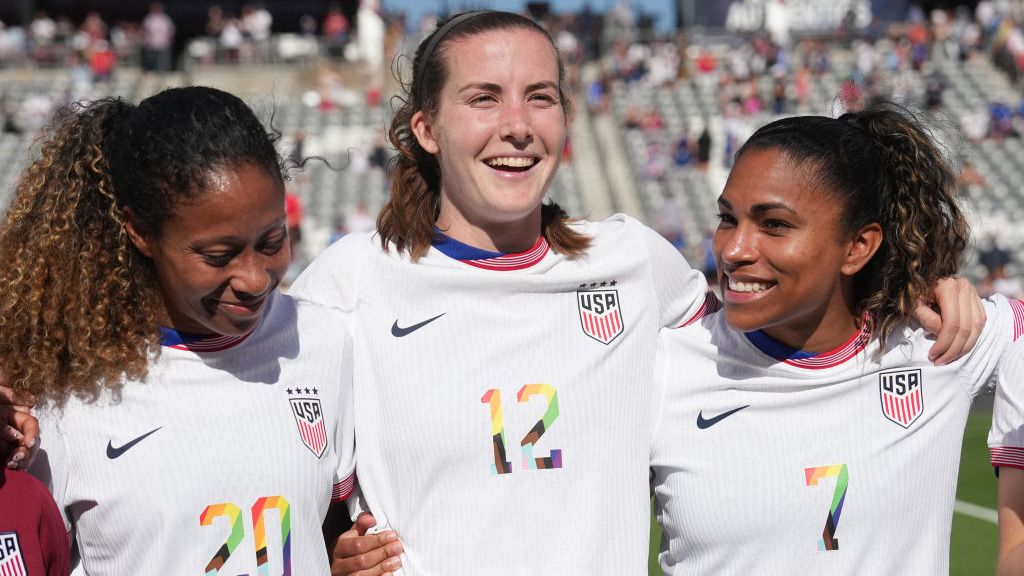
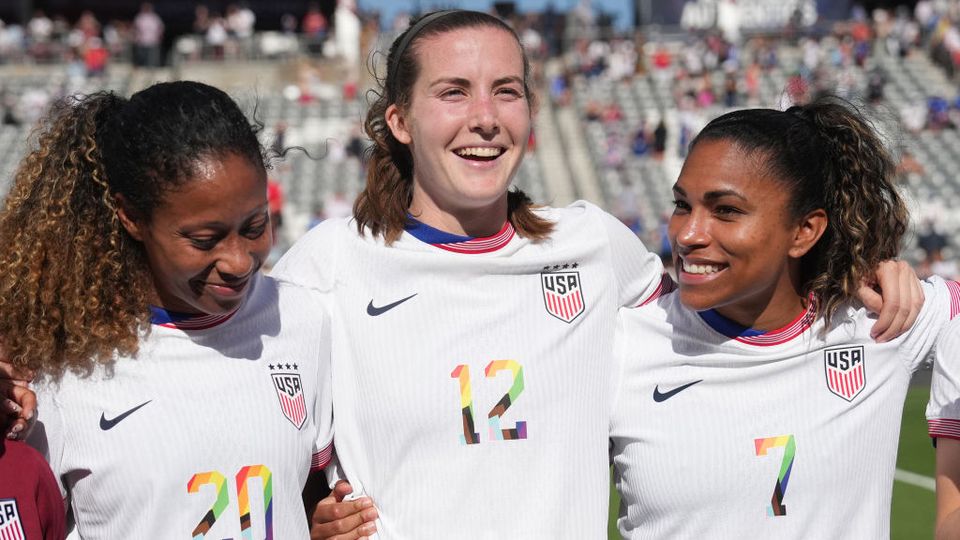


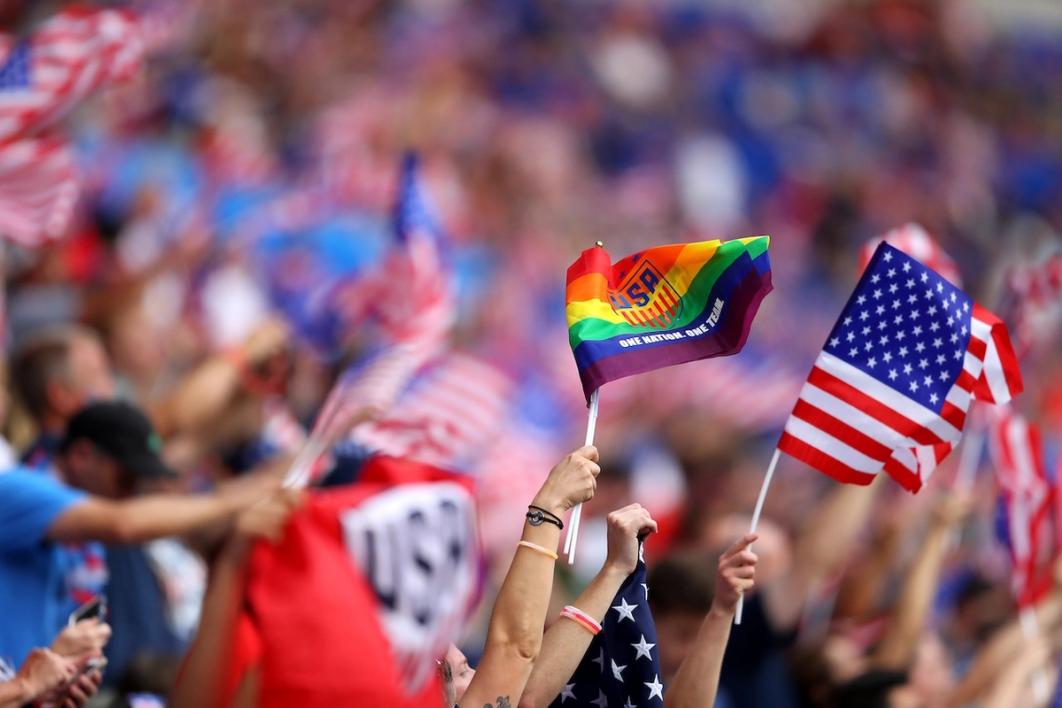
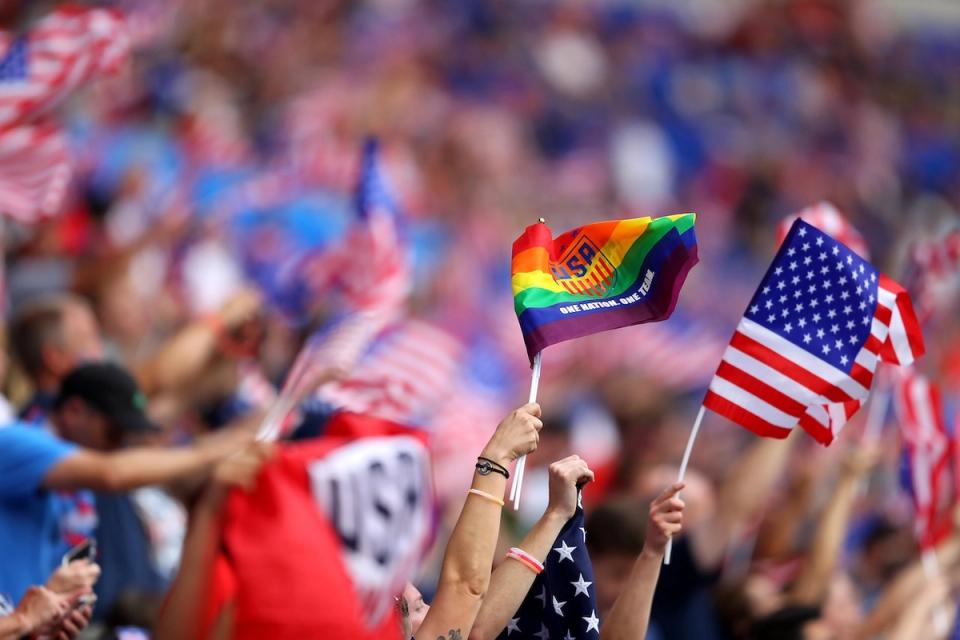
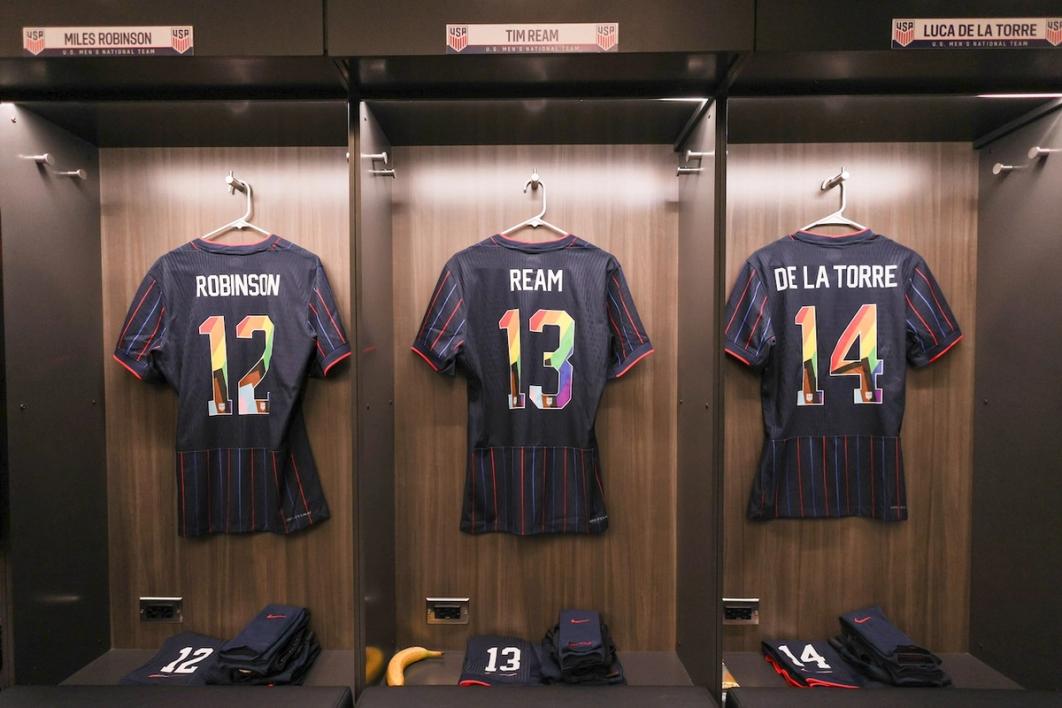
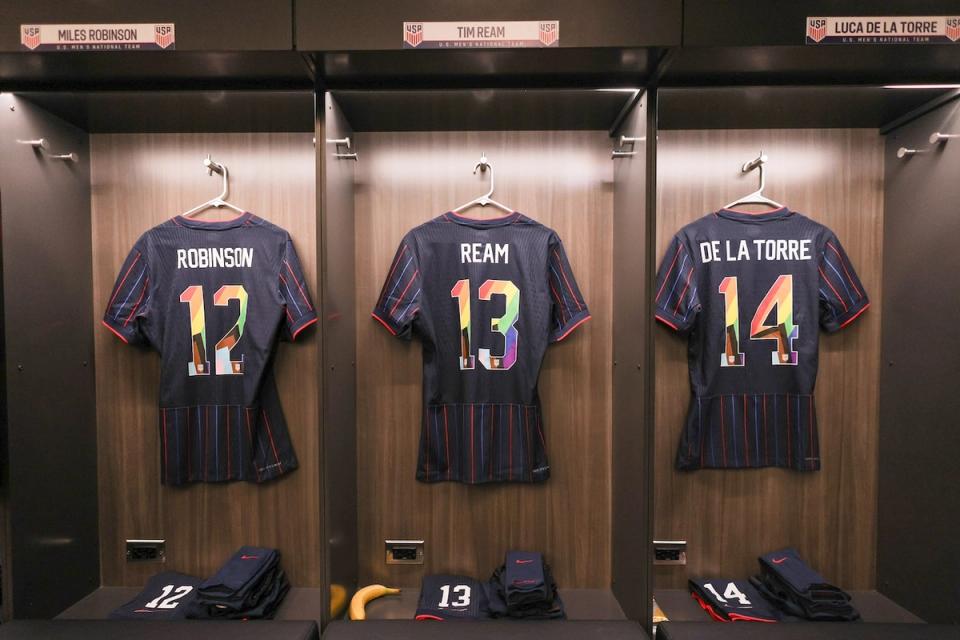
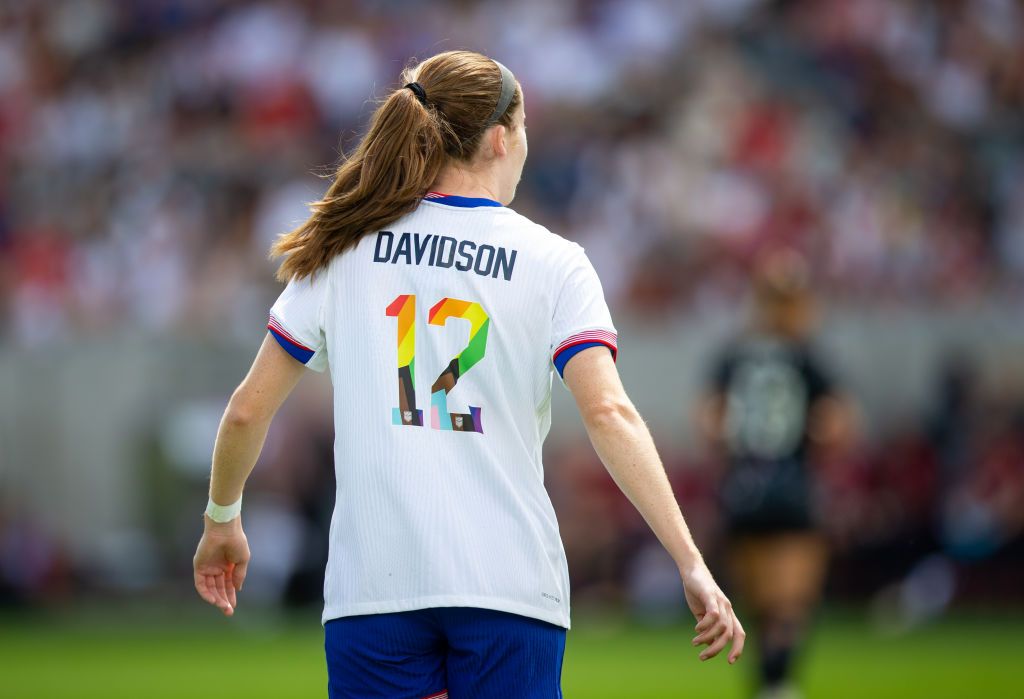
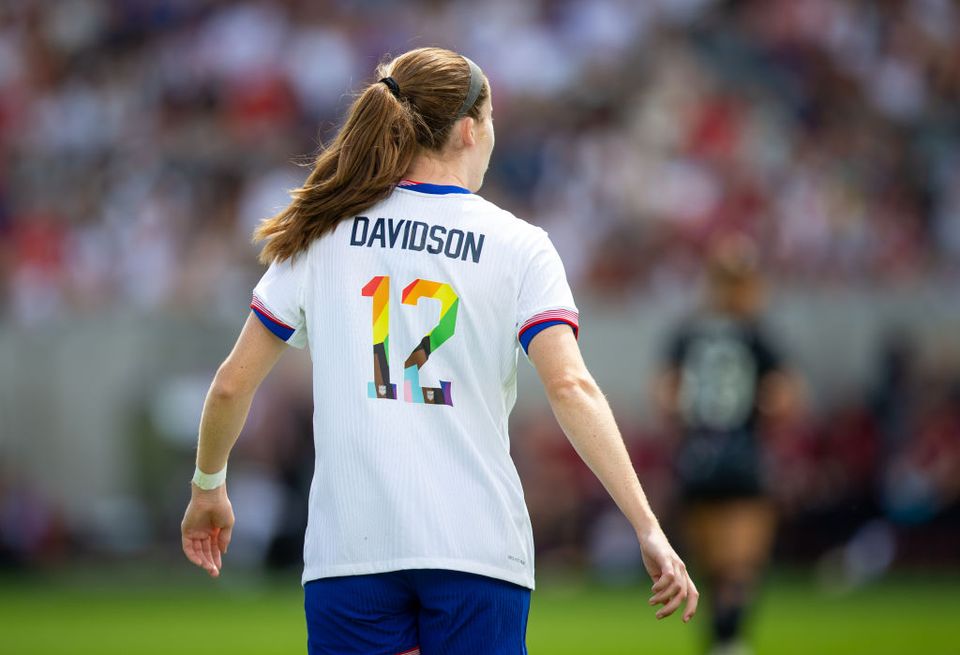
When U.S. Soccer first introduced Pride number kits in 2017, Tierna Davidson hadn’t yet received her first senior team call-up.
So, as a young queer fan and youth National Team player, Davidson watched the USWNT and USMNT suit up in jerseys that celebrated her community.
“It felt really appropriate for the team,” Davidson said. “The team has historically always been a beacon for the queer community and to wear the numbers just felt really fitting. ... I think they were probably one of the first sports teams to do that. I feel like I hadn’t seen that in sports before.”
It wasn’t long until Davidson got a chance to wear the number herself. After winning an NCAA title later that year with Stanford, the defender earned her first cap in January 2018. She started the first six games of the year before Pride month rolled around, and made her seventh appearance in the June international window.
She remembers the special moment, the moment she got a chance to showcase the rainbow-styled number on the back of her jersey. It also came with a victory in a 1-0 win against China PR in Sandy, Utah.
“It just felt so important to be able to represent myself, to be able to represent other queer individuals, and be able to celebrate that,” Davidson said. “But also just to feel the gravitas that the queer community has in our team and the importance we all felt to represent them. I think especially at the time I first wore the Pride jersey, there was a lot of representation on the team, so it was just fun, almost a community builder. It was like a Pride party on the field.”
U.S. Soccer National Teams have kept up the tradition of wearing the jerseys during Pride month, which embraces the different identities and experiences of LGBTQ+ individuals.
Every June, USMNT defender Tim Ream’s phone blows up after the team wears the jerseys for the first time each year. Within hours of the final whistle, he’s getting texts asking, “Can you save me one?” or “Can you have more made?” Not everyone who reaches out is a big sports fan, but the Pride numbers always catch their attention.
The messages demonstrate to Ream and his teammates one of the most beautiful aspects of soccer — that everyone belongs.
“I think everybody gets really excited about the uniqueness of the jerseys, but also the idea, the reminder to everyone that you know we all come from different walks of life,” Ream said. “We all have different ideas, and we may identify as one way or another, but we're all included. We are all together.”
Like Ream, former USWNT midfielder Samantha Mewis also donned the shirts in the inaugural year in 2017. Mewis felt like it was a “beautiful statement of support” from U.S. Soccer but also a tribute to the fans.
The jerseys also created a conduit for Mewis to have deeper, eye-opening conversations with those around her. She didn’t understand some of the battles her teammates were facing with being accepted by their families.
“I remember feeling really moved by that and recognizing that it was going to be really important for me to be an ally and advocate for the celebration of Pride and advocate for the LGBTQ community,” Mewis said.
Mewis’ support also extends to her older sister Kristie, also a former National Team player, who recently had a baby with her fiancé, Australian and Chelsea FC star Sam Kerr. Her sister,Samantha is uniquely aware of how much it matters.
“I know that community is going through a lot right now and have a difficult time with some of their human rights and generally just being pretty targeted,” Mewis said. “I think that especially right now, Pride is important to me ... they bring so much to the table, and they bring so much to our world.”
For Davidson, Pride means celebration, but it’s also about protest.
According to the Human Rights Campaign, more than one in five hate crimes is motivated by anti-LGBTQ+ bias. She understands just how important it is to uplift and create a safe space for the collective group.
When U.S. Soccer first launched the rainbow numbered jerseys, it was not very common to find many in sports pushing that envelope, Davidson recalls. It was important then to promote that message, but the continual support now is even greater.
“Especially in these times that we’re living in at the moment, where the future is a little bit uncertain for minority groups, I think it’s really important that we maintain that representation, that we maintain that positive support of our community,” Davidson said. “And that no matter what we’re still there to support and we’re still there to include queer people in our community. No matter what community they might be getting tossed out of, we will always be there for them.
“I think that’s so important for us to continue to put out, not just with the rainbows and with the numbers, but also with our actions.”